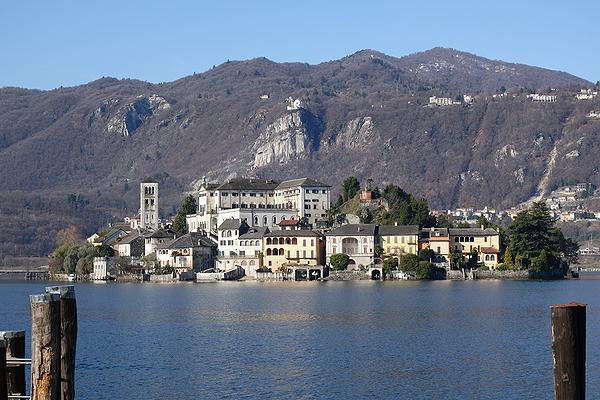ITALY CHRONICLES
Latest Posts

New! Italy Photo Contests – Show Off Your Photos of Italy
If you, like me, you think Italy is extremely photogenic, you might be interested to hear that Italy Chronicles is to run photo contests. The
Italian Politics – Still a Mess
Here’s a roundup stroke overview of what’s going on in the decidedly odd world of Italian politics. Broadly, there are three political factions in Italy,
Wild Boar Hunting in Italy
Ever thought about wild boar hunting in Italy? Maybe not but perhaps you might like to. Italy has a bit of a problem with wild
Berlusconi Heart
On Thursday in Italy headlines were dominated by the news that Silvio Berlusconi, a former and controversial prime minister, required an urgent heart operation and had
Money People – The World’s Biggest Problem
What’s that old saying? Ah yes, “money is the root of all evil”. From what is happening in Italy and elsewhere around the world, there
Italian Politics – Still a Mess
Here’s a roundup stroke overview of what’s going on in
Wild Boar Hunting in Italy
Ever thought about wild boar hunting in Italy? Maybe not
Berlusconi Heart
On Thursday in Italy headlines were dominated by the news
Money People – The World’s Biggest Problem
What’s that old saying? Ah yes, “money is the root
Italy
Prosecco – better than Champagne!
Ah, Prosecco. A wonderful Italian drink. It’s a bubbly straw-yellow white white which often comes from the Conegliano-Valdobbiadenearea areas of Italy. Actually, Prosecco comes in still, semi-sparkling or fully sparkling varieties.
Salvo Spagna Believes in Italy
Salvo Spagna, who I’m lucky enough to have as one of my clients, is an Italian who is clearly aware of all that Italy has

In Memoriam: Murdered Italian Journalists Ilaria Alpi and Miran Hrovatin
Few beyond Italy’s borders will have heard of late Italian journalists Ilaria Alpi who was murdered in Somalia along with cameraman Miran Hrovatin this very
Italian Cars for Blogstars – Part 2 – Studiotorino
How about mixing a little Teutonic efficiency with some red hot Italian passion? That should be a recipe for something quite special, now shouldn’t it?

No Future in Italy for the Young
Low salaries, unclear career paths, and a distinct lack of meritocracy are aspects of Italy’s job market which have caused many young Italians to look for jobs outside of Italy. Italian brain power, which is not to be underestimated, is moving away, and may never return.
“Eating Seasonally: The Italian Way”
In Italy, eating seasonally is quintessential. From the hills of Tuscany to Rome’s bustling markets, this culinary tradition is embraced. It’s not just about choosing
How To Sell More Wine
I like wine, and a particularly like Italian wines. The
Sorrento’s Historic Old Town: A Mediterranean Gem
Sorrento’s Historic Old Town, nestled along the picturesque Mediterranean coast,
Properties

How to Find Property for Rent in Italy
Maybe you are coming to Italy to work or study here for a while, in which case, you’ll need somewhere to live. If that’s the

The Admirable Admiral’s Villa in Taormina
If you know your history pretty well, you may be aware that one of England’s most celebrated Admirals possessed a rather charming villa in the scenic Sicilian town of Taormina.
House For Sale near Milan
Gaetano Salvo, friend and Blog from Italy researcher wants to sell his house. For those who might be interested, or may know of someone or

How to Find Property for Rent in Italy
Maybe you are coming to Italy to work or study here for a while, in which case, you’ll need somewhere to live. If that’s the
House For Sale near Milan
Gaetano Salvo, friend and Blog from Italy researcher wants to sell his house. For those who might be interested, or may know of someone or
Places to stay in Italy
Villa Miller Bed and Breakfast, Puglia, Italy
Located well off the main road in the depths of the Puglia countryside, Villa Miller the only sounds which disturb guests are those of the crickets and the ringing of the bells worn by the areas cow and sheep population.
Chaplin Bed and Breakfast Rome
Perfectly located in a safe and quiet but extremely central Rome neighborhood, the Chaplin Bed and Breakfast Rome is the ideal base for your Roman holiday.
Casa Villatalla B&B, Liguria
By far the most important members of the Casa Villatalla household are Nellie (an elderly but loveable chocolate Labrador), Bonnie, a fluffy and rather scatty American Spaniel, and Pickle, aneccentric cat who walks like John Wayne.
Casa Villatalla B&B, Liguria
By far the most important members of the Casa Villatalla household are Nellie (an elderly but loveable chocolate Labrador), Bonnie, a fluffy and rather scatty American Spaniel, and Pickle, aneccentric cat who walks like John Wayne.
Villa Miller Bed and Breakfast, Puglia, Italy
Located well off the main road in the depths of the Puglia countryside, Villa Miller the only sounds which disturb guests are those of the crickets and the ringing of the bells worn by the areas cow and sheep population.

